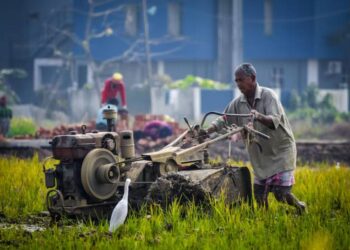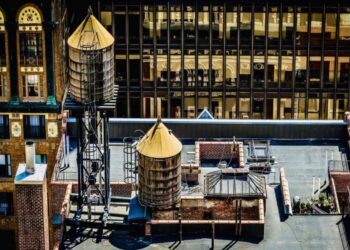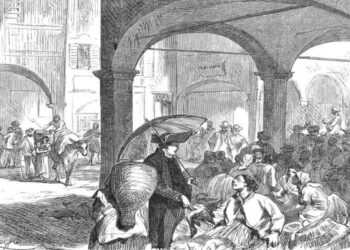In a heart-wrenching event that has ignited fierce debate over US immigration policy, the father of a 13-year-old girl who was brutally attacked in a Queens park has spoken out. His daughter, the victim of a heinous act perpetrated by an undocumented immigrant, has become the face of what many see as the catastrophic consequences of lax border controls.
The incident occurred on June 13, when Christian Geovanny Inga-Landi, a 25-year-old Ecuadorian national previously ordered to be deported, allegedly led the young girl and a male teenager at knifepoint into a secluded area of Kissena Park.
Authorities report that he then bound and assaulted the girl in broad daylight, an act of violence that has shaken the community and the nation.
The father, aged 70, whose identity is withheld to protect his daughter, relayed the horror and upheaval that the event has wrought on his family. Speaking from their home in Flushing, he expressed devastation and disbelief. “It just turned my world upside down, and the healing process has yet to begin,” he shared in a voice heavy with emotion. “My mind is swirling with all of my anger right now.”
This personal tragedy has catapulted him into a reluctant spotlight, fueling his vigorous criticism of President Biden’s immigration policies. He argues that the administration’s approach has facilitated an environment where dangerous individuals can enter and remain in the country with little resistance.
“I have never agreed with the open border policy because that just invites a lot of things that we don’t need,” he stated emphatically.
Inga-Landi, who had crossed the United States via the Texas border in 2021, faced a directive from a New York City immigration judge to leave the country as of last February—a mandate that was not enforced.
His continued presence in the US culminated in this tragic event, underscoring systemic failures that have now come under scrutiny.
The suspect’s arrest five days after the attack provided some solace to the family. However, the father’s relief is tempered by a persistent sense of insecurity and betrayal by the system meant to protect them.
“It’s very devastating for our family, but with this guy being where he is right now, that’s great because we can proceed and concentrate on something else,” he remarked.
His gratitude extends to the brave civilians who detained Inga-Landi until police arrived. Reflecting on their heroism, he said, “I would have done the same thing if it was someone else’s child… I definitely would have. No hesitation.” This sentiment highlights the communal spirit and courage that often emerges in the face of such crimes.
Inga-Landi’s legal history further complicates the narrative. Before this incident, he was involved in a contentious custody dispute with his ex-wife, which included allegations of previous violent behavior.
This history of violence, particularly against women, paints a portrait of a man who was a known risk before the assault in Kissena Park.
During his arraignment, Inga-Landi chillingly admitted to recording the assault, a confession that has only fueled public outrage and calls for stringent reform.
He now faces charges of rape, predatory sexual assault, kidnapping, and several other felonies, with the judge ordering him held without bail.
The case has not only devastated a family but also stirred a national conversation about the effectiveness and morality of current US border policy and immigration enforcement. Critics argue that this incident directly correlates with policy laxity and the safety risks posed to American citizens.
Supporters of stricter immigration controls use such incidents as evidence of the need for heightened vigilance and enforcement at the border.
Conversely, immigration advocates caution against painting all immigrants with the same brush, emphasizing that the actions of a few should not dictate the fate of many who seek safety and opportunity in the US.
They call for a balanced approach that enhances security without compromising the values of asylum and refuge that the country stands for.
As this debate unfolds, the community around Kissena Park and beyond continues grappling with this tragic event’s implications.
The political and ideological battles offer little comfort to the father at the heart of this storm. His primary concern remains the recovery and well-being of his daughter, whose life has been irrevocably changed.
This incident serves as a grim reminder of the human cost of policy failures and the profound impact of immigration laws on individual lives.
It challenges policymakers, law enforcement, and the community to reflect deeply on their responsibilities and the collective moral imperatives that should guide the nation’s decisions on immigration and border security.







